Water Requirements for babies and beyond
The human body consists mainly of water. Water represents:
-85% of the foetus;
-70% of newborns;
-About 55-60% of adults;
-50% of elderly.
Why water is so important
Water is essential for the body because:
- It acts as a solvent for nutrients (vitamins water-soluble, mineral, amino acids, glucose …) thus playing an essential role in the digestion, absorption and transport of these nutrients.
- It maintains the right intestinal content consistency.
- It is the means by which the body eliminates metabolic wastes.
- It maintains skin and mucous elastic (reduces respiratory infections).
- It is necessary for body temperature regulation.
- Water acts as a lubricant.
- The correct hydration guarantees a higher attention at school (only 1-2% less water in the body can reduce about 10% concentration during study time). Drinking water helps the brain to store and retrieve information; it activates the electrochemical communication between the brain and the nervous system.

Dehydration
Paying attention to water requirements for babies is of utmost importance because babies belong to the group of people most at risk of dehydration. It is important to make sure they have the correct water supply in order to reintegrate liquid and mineral salts, specially during Summer time. If it’s very hot, the baby’s water requirements increase around 15-20%.

How do you know if a baby has drunk enough?
In case of water deficiency it’s fundamental that the adult promptly recognizes the symptoms of dehydration such as abnormal tiredness, headache, decreasing and urine colour change. If urine colour is dark, it means that a child has not drunk enough.
Other symptoms are:-
- Dry mouth.
- The baby does not produce a wet diaper every 3 hours.
- The baby sweats less.
- The baby has cramps.
The importance of educating baby to drink
A baby’s perception of thirst is less developed than that of an adult. Thus it’s important to educate a baby from a young age to drink frequently. Educate your baby to keep a bottle or a cup of water with him/her, in order for it to become a daily habit.
In order to encourage a baby to drink:
- Use coloured bottles or cups/straw cups. Thanks to their child appeal, water is available and a baby can drink easily, eliminating the baby becoming thirsty.
- Parents should keep a good supply of water with them when out & about and encourage their baby to drink frequently.
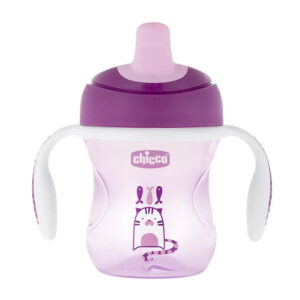
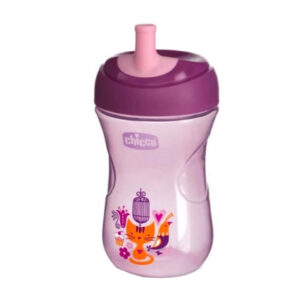
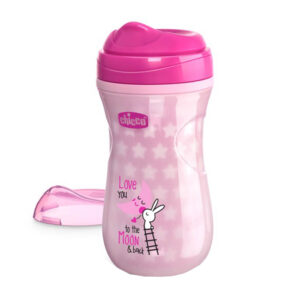
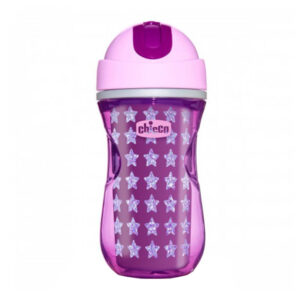
What drink?
If a child is breast fed, it is not necessary to offer additional water or other infusion because breast milk is composed of over 80% water.
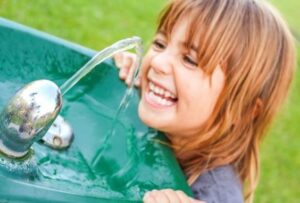
From weaning and beyond:
- It is important to drink water(not too cold).
- Drink water with low percentage of mineral salts in order to avoid metabolic pathways overload.
- Water during childhood should have a fixed residue of < of 500mg/L; other wise it is recommended < of 1.000 mg/l.
- Quantity of nitrate must be < of 10mg/l.
- Eating fruits and vegetables helps to moisturize the body.
- Sugar based drink and fruit juices are not recommended; they are pleasant, but they are loaded with calories.
- Milk is a food, it doesn’t quench the thirst.
- Water is the ideal beverage: it is tasteless, it doesn’t alter the flavour of food and it does not make you gain weight even if drunk in excess.